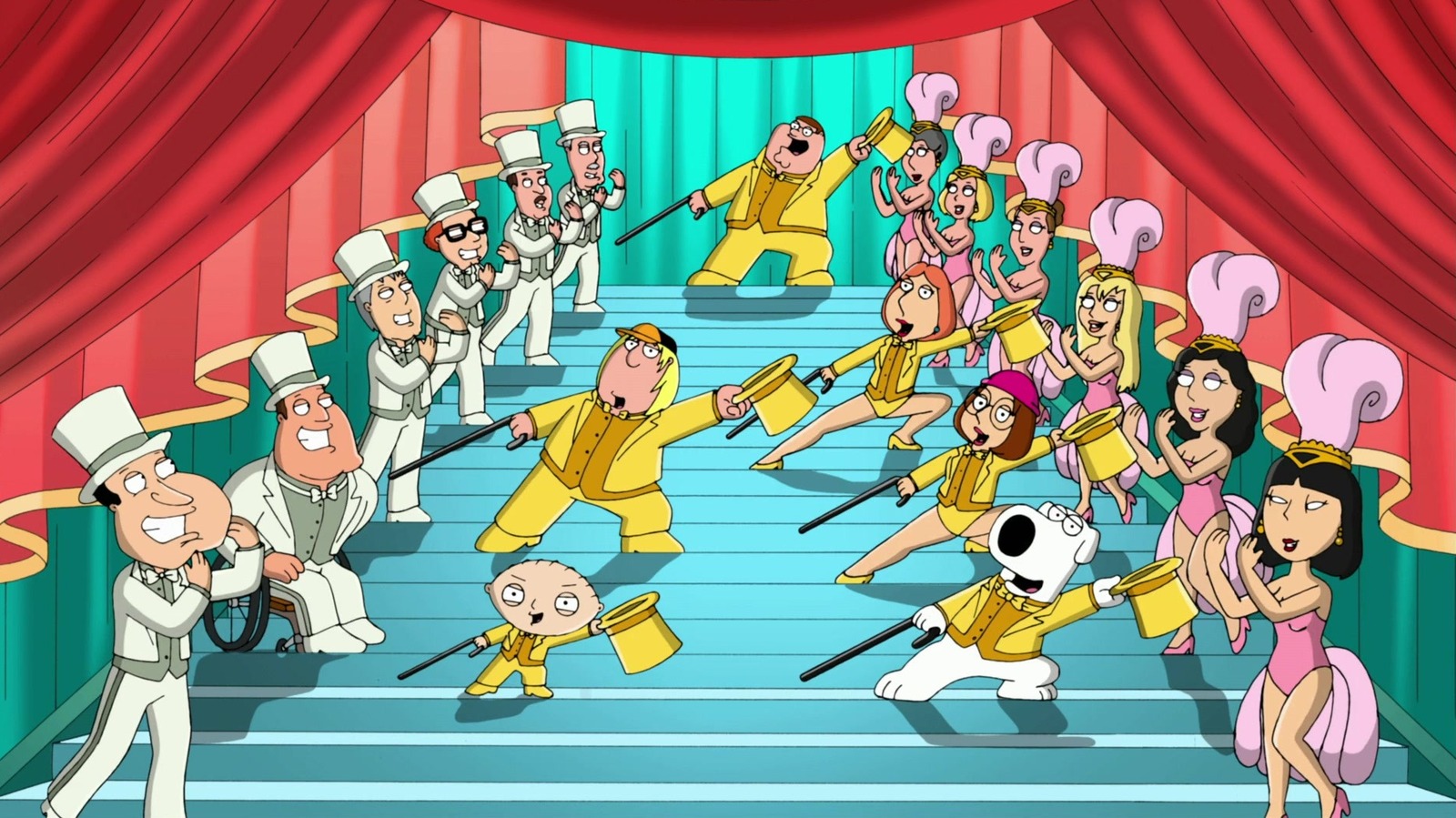Useful information
Prime News delivers timely, accurate news and insights on global events, politics, business, and technology
Useful information
Prime News delivers timely, accurate news and insights on global events, politics, business, and technology

Seth MacFarlane’s animated comedy “Family Guy” has long traded shocking humor and crude jokes. Like a version of “The Simpsons” prepared for frat boys, “Family Guy” was born when many comedians and television shows were testing the limits of what was considered acceptable on television. Many of said comedians were rejecting the still-remembered manufactured health of the Reagan 1980s. MacFarlane was born in 1972, so he grew up witnessing the blandness of the “classic American sitcom.” There was also a general cultural unease at the 1990s trend toward “politically correct language,” even among those who agreed with the sentiment toward sensitivity.
MacFarlane’s “Family Guy” began with a riff on the title sequence of “All in the Family” and then exploded into a dazzling song-and-dance routine about (ironically, of course) restoring “good old-fashioned values.” “. However, the title was ironic. Peter Griffin (MacFarlane) was not a “family man” at all, but rather an alcoholic, boorish, media-blinded idiot with tendencies toward sexism and bigotry. Old-fashioned values, MacFarlane declared, were actually horrible and old-fashioned.
Much of the shocking humor of “Family Guy” is intended as a parody of sexist and bigoted attitudes so often seen on “old-fashioned” television shows, revealing how rotten many of America’s core conservative values really are. However, with many of the show’s jokes, the line is blurred. Sometimes MacFarlane makes a comment. Sometimes he’s just rude for the sake of it. There will be at least one joke per episode that will offend most people.
“Family Guy” has followed that vein for 426 episodes over the course of 23 seasons. The show has been canceled and resurrected, and shows no signs of ending anytime soon. In a 2022 interview with The Hollywood ReporterMacFarlane and producers Alec Sulkin and Rich Appel theorize how they’ve been able to get away with this for so long. MacFarlane claims that few people are actually offended by his show.
MacFarlane found no evidence (at least anecdotally) that anyone was actually offended by any of his risqué jokes on “Family Guy.” He said he had found some thoughtful essays and think pieces about how someone might be offended by “Family Guy,” or how the show is a kind of cultural indicator of disrespect toward our fellow human beings, but he never spoke to anyone who was. openly annoying (except for the occasional celebrity he made fun of).
He noted that there was some outrage from Twitter users (transformed into the social media nightmare that is now X), but MacFarlane was smart enough to recognize that Twitter users were not any kind of serious cross-section of your audience. I knew that social media is not reality. MacFarlane said:
“The so-called outrage, I don’t encounter much in the real world. I read a lot about it on Twitter, which, as much as we give it credit, is statistically very marginal. Most people are not on Twitter But in terms of comedy , I don’t think I’ve ever spoken to a single person in the real world (outside of social media and op-eds) who is genuinely upset about the state of edgy comedy People want to hear about the opposite. ”
It’s also worth noting that “Family Guy,” being animated, has a lot more freedom to say and do rude things. When a live-action actor says something clearly anti-Semitic on a comedy show, it’s hard to accept because there’s a real person on tape saying it. In “Family Guy,” dark jokes are repeated with big-eyed caricatures, talking dogs and other fantastical characters. The absurd images take away a lot of its advantage.
Producer Alec Sulkin notes that “Family Guy” must also give a lot of credit to fellow producer Rich Appel, who has a keen eye for what can and can’t be done legally. It’s fair game to satirize a public figure, but “Family Guy” sometimes approached the line of legal defamation. Appel himself then weighed in, pointing out that animated shows are capable of going above and beyond with impactful humor by dint of their medium. After all, “The Simpsons” and “South Park,” the older siblings of “Family Guy,” also get away with “offensive” material, so “Family Guy” was simply doing the same thing. Appel said:
“I think if you look at ‘South Park’ and ‘The Simpsons’ and our show, it’s not a coincidence that everyone is animated. And I think people’s quote-unquote ‘outrage’ and their willingness to get offended by anything is on a different world when they’re animated characters. To me, it’s proof that people don’t get as offended.”
MacFarlane noted that you can’t tweet angrily at characters like Peter, Lois and Stewie Griffin, because they’re animated characters. They can’t even be pretended to live in the real world and the audience has to accept them in the abstract.
It’s easy to “get away with” being offensive when all the evidence points to people not being offended. There will always be a market for risqué and offensive humor, and “Family Guy” has been willing to provide it for more than two decades. There are certainly legitimate criticisms to be made of “Family Guy” (the creators of “South Park” have openly lampooned the fact that the show favors pop culture references over story), but I think we can all agree. I agree that the show’s inappropriate humor is not one of its great weaknesses.